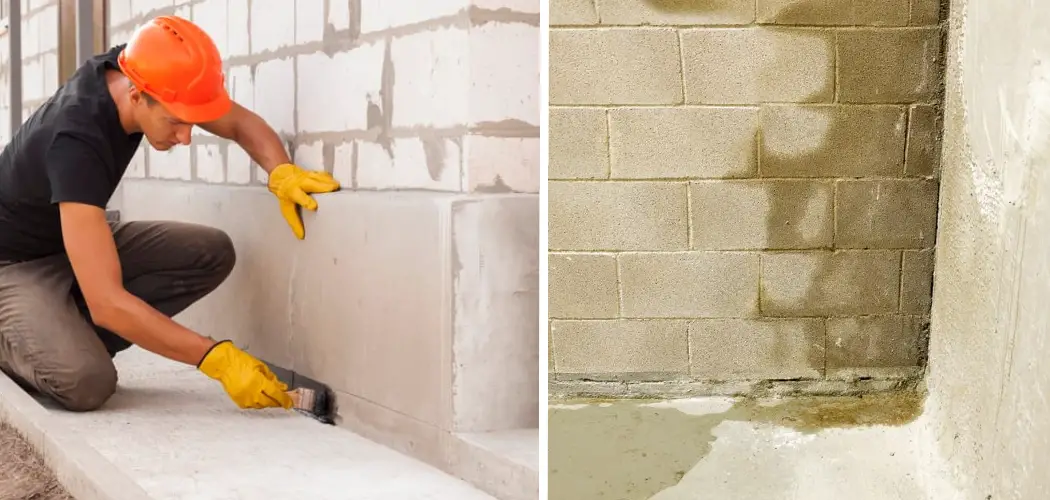You may not think about it, but the moisture in the air can cause damage to your basement. In this blog post, we’re going to tell you how to keep moisture out of your basement so that you can protect this valuable space. Read on for more information on how to keep moisture out of basement.
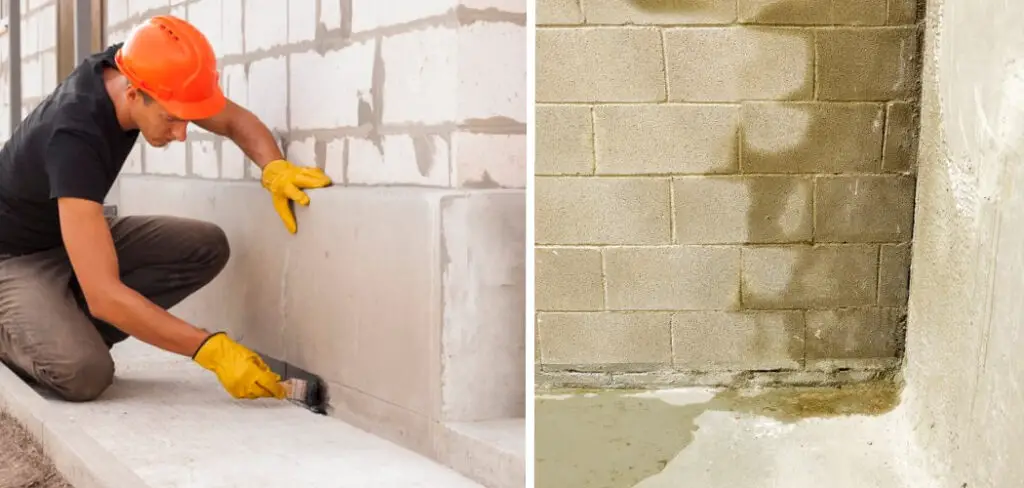
Can You Keep Moisture out Of the Basement?
Most basements are damp, and some even flood when it rains hard. This is because water seeps in through cracks in the foundation or walls or from the groundwater that surrounds the house. As a result, many homeowners are looking for ways to dry their basements.
One solution is to install a sump pump, which pumps water out of the basement before it has a chance to seep in. Another option is to seal the basement with a waterproof coating or membrane. This helps prevent water from getting in, but it can also trap moisture already present in the basement.
As a result, it is important to monitor the basement carefully for signs of moisture build-up, such as musty odors or condensation on walls and floors. These steps can help keep your basement dry and free of mold and mildew.
Why Should You Keep Moisture out Of the Basement?
Moisture in the basement can lead to several problems, including mold and mildew growth, musty odors, and damage to stored items. Additionally, moisture can contribute to wood rot and insect infestations. For these reasons, keeping the basement as dry as possible is important.
There are several ways to do this, including using a dehumidifier, sealing cracks and gaps in the foundation, and ensuring proper drainage around the perimeter of the house. By taking these precautions, you can help to keep your basement dry and free from moisture-related problems.
7 Ways to Follow on How to Keep Moisture Out Of Basement
1. Inspect the Basement Regularly
One of the best ways to keep moisture out of your basement is to inspect it regularly. Look for any cracks or gaps in the walls or floors, and seal them with caulk or expanding foam. Also, check the gutters and downspouts to ensure they are clean and debris-free.
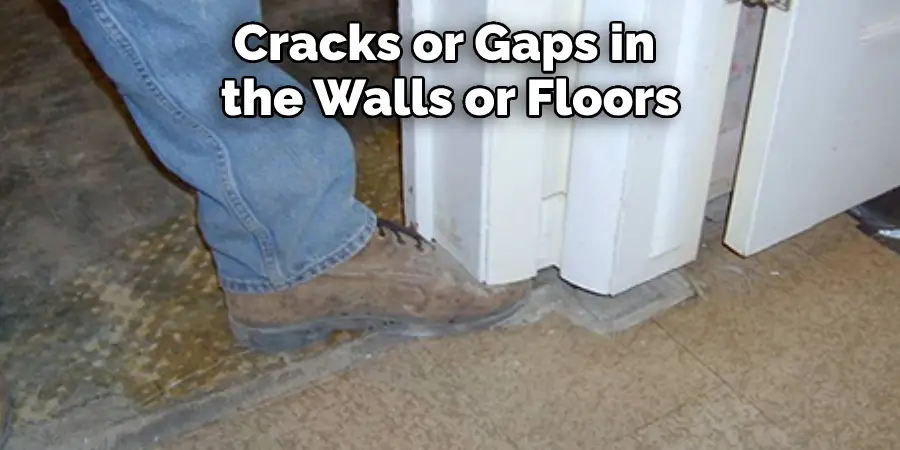
2. Install a Sump Pump
Another great way to keep moisture out of your basement is to install a sump pump. A sump pump will remove any water that accumulates in the basement and pump it out of the house. This is a great way to prevent flooding and water damage.
3. Use a Dehumidifier
Another great way to keep moisture out of your basement is to use a dehumidifier. Dehumidifiers remove moisture from the air, which can help prevent mold and mildew growth.
4. Ventilate the Basement
Another great way to keep moisture out of your basement is to ventilate it. Basements that are properly ventilated will have less moisture in the air, which can help to prevent mold and mildew growth.
5. Use Fans
Fans can also be used to help keep moisture out of your basement. By circulating the air, fans can help to remove moist air from the basement and prevent it from condensing on walls or floors.
6. Insulate the Basement
Another way to keep moisture out of your basement is to insulate it. By keeping the heat in and the cold out, you can help to reduce the amount of moisture that condenses on walls and floors.
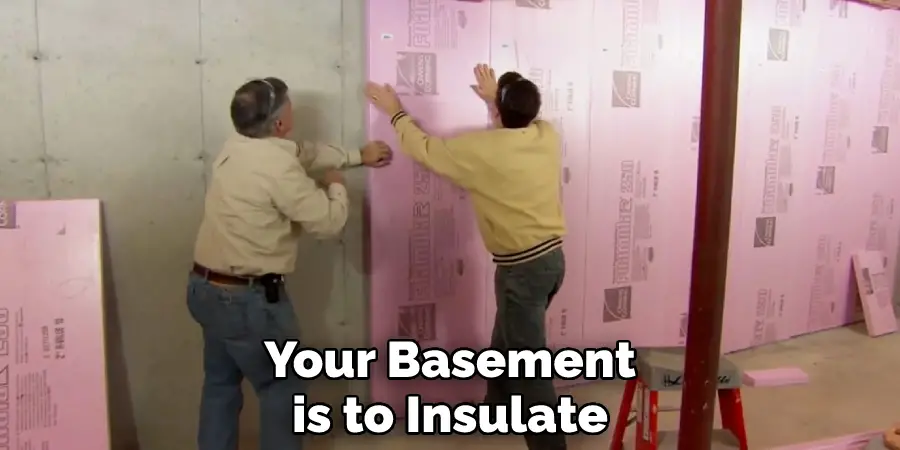
7. Keep Water Away from The Basement
Finally, it’s important to keep water away from your basement. Fix any leaking pipes, gutters, and downspouts, and make sure your landscaping is sloped away from the house so that water won’t pool near the foundation. Doing these things can help to keep moisture out of your basement and prevent it from entering the house.
That’s it! You’ve now learned how to keep moisture out of base ment. By following these ways, you can help to ensure a dry and comfortable home.
Take action now and start improving the condition of your basement! With some time, effort, and these simple steps, you can enjoy a healthy, dry environment in no time.
Things You Need to Know Before Keep Moisture out Of the Basement
Before you start to keep moisture out of your basement, there are a few things you need to know. First, it is important to identify the source of the moisture. This can be rainwater, melting snow, or even high humidity levels. Once you know the source of the moisture, you can take steps to prevent it from entering your basement in the first place.
For instance, you may need to install gutters or seal cracks in your foundation. If the moisture is already present in your basement, you’ll need to take steps to remove it. This can be done with a dehumidifier or by ventilating the space.
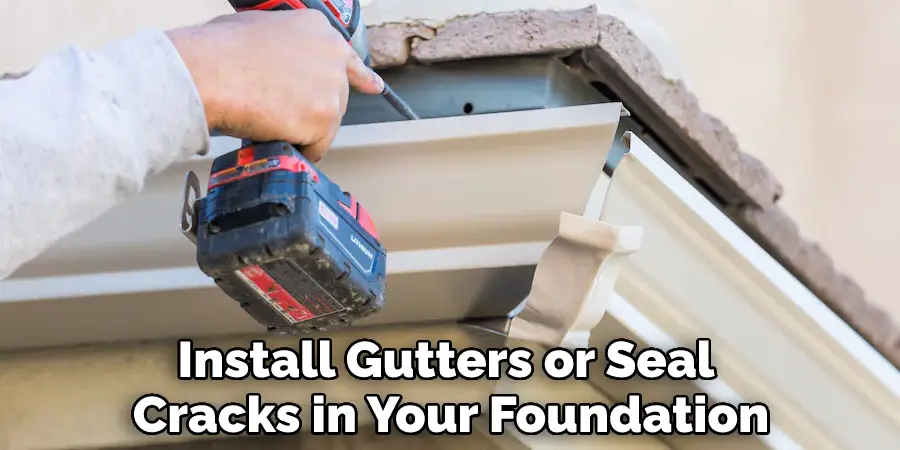
Finally, it is important to take preventive measures to keep moisture from returning. This might involve using waterproofing paint or sealant on your basement walls. By taking these steps, you can help keep your basement dry and free of mold and mildew.
Some Benefits of Keep Moisture Out Of Basement
Basements are susceptible to moisture damage because they are below ground level and often lack proper ventilation. Moisture can lead to the growth of mold and mildew, which can damage the structure of your home and cause health problems.
Keeping moisture out of your basement is essential to protecting your home and ensuring your family’s health. There are several ways to do this, but some of the most effective include installing a vapor barrier, using a dehumidifier, and sealing any cracks in the foundation.
Vapor barriers are designed to prevent moisture from passing through your basement walls. They are typically made of heavy-duty plastic and can be installed by a professional or do-it-yourselfer. Dehumidifiers remove moisture from the air, preventing it from condensing on walls or floors.
They come in various sizes and can be portable or permanently installed. Sealing cracks in your foundation will also help keep moisture out and prevent pests and drafts from entering your home. Taking these steps can help keep your basement dry and free of mold and mildew.
The Best Time to Keep Moisture out Of the Basement?
Basements are notorious for being damp and musty, but there are things you can do to prevent moisture from seeping in. The best time to keep moisture out of the basement is during construction. First, ensure the foundation is properly waterproofed, and all cracks and gaps are sealed.
You should also install a vapor barrier inside the foundation walls to prevent moisture from coming up from the ground. Once the basement is finished, you can further reduce moisture levels by running a dehumidifier and opening windows to let in the fresh air. You can keep your basement dry and comfortable year-round by taking these steps.
Is There Anything I Can Do to Stop Moisture from Entering Through the Windows or Walls?
There are a few things you can do to try to keep moisture from entering your home through the windows or walls. First, ensure your gutters and downspouts are clean and in good condition. This will help ensure that water is properly diverted from your foundation. You should also check that your windows and doors are properly sealed and caulked.
If there are any gaps or cracks, be sure to fill them in. Another option is to install weather stripping around doors and windows. Finally, you can try running a dehumidifier in your home, which can help to keep indoor humidity levels low. By taking these steps, you can hopefully keep moisture from entering your home and causing problems.
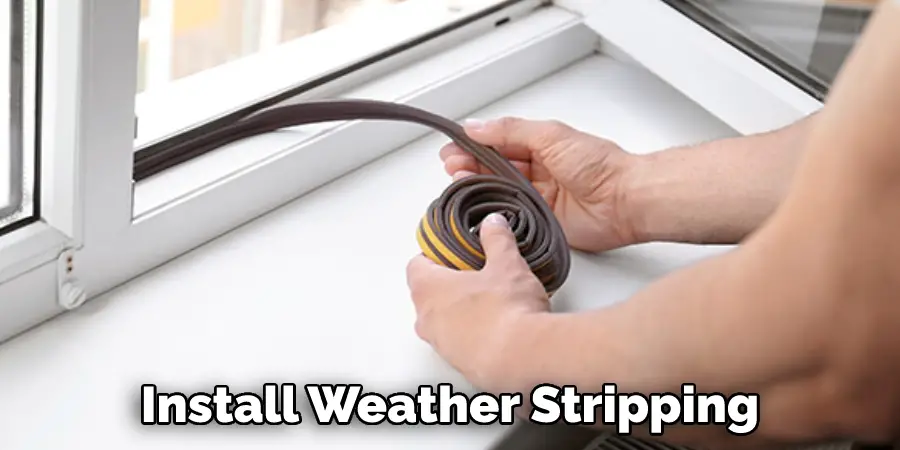
How Often Should I Check for Leaks in My Basement?
If you have a basement, it’s important to check for leaks regularly. Water damage can cause serious structural problems and be expensive to repair. Leaks can also lead to mold growth, which can harm your health. So how often should you check for leaks?
The frequency of your checks will depend on a few factors, including the age of your home, the weather conditions in your area, and whether you’ve had any previous leaks. For example, if your home is newer or you live in an area with mild weather, you may only need to check for leaks once or twice a year.
However, if your home is older or you live in an area with extreme weather conditions, you may need to check for leaks more often. In addition, if you’ve had any previous leaks, it’s a good idea to check for new ones more frequently.
No matter how often you check for leaks, it’s important to take action immediately if you find one. Leaks can cause serious damage quickly, so don’t wait to fix them. If you’re unsure how to fix a leak, call a professional plumber for help.
Conclusion
Many homeowners face moisture in the basement as a common problem, but there are a few things you can do to prevent it. If you already have a moisture problem in your basement, there are a few things you can do to fix it as well. You can keep your basement dry and free of mold and mildew by taking proactive steps and implementing solutions.

